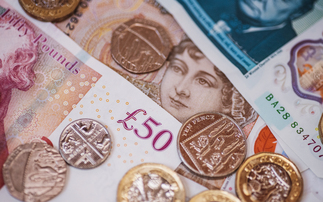It is ironic, perhaps, that just as the authorities are in the midst of aggrandising their growth numbers for 2017, the economy seems to be losing a bit of momentum.
Trade flows
The second significant sterling effect will be on trade flows. A currency depreciation improves UK producers' competitiveness in both export and import markets. Again, this impact is not as clean as it initially might appear.
Improved competitiveness takes time to feed through to real orders and sales, and in between times, the trade balance will almost certainly show the detrimental impact of the rising cost of imports.
Also, improved competitiveness resulting from a currency move can be partially offset by the rising cost of raw materials and energy used in the production process.
Furthermore, some companies competing with overseas producers may choose to take some of the benefit of improved competitiveness through raising prices and markings rather than volumes. This might show through in higher export values, but it will restrict the impact on real GDP.
Many unknowns
Economists are not good at anticipating turning points or even inflection points in the economic cycle.
The history of forecasting reveals an alarming tendency towards taking the two most recent data points and extending into the future, with the aid of the indispensable 15-inch ruler. We have all fallen into this trap, one that the authorities, with their huge teams of economic analysts, have proven no better at avoiding.
For 2017, there are many unknowns working in varying directions and at differing speeds. In the past, I have tended to place a lot of faith in the intrinsic resilience of the economy.
On this occasion, it would seem that even if the central growth forecast for 2017 is moving towards 2%, there are greater risks to the downside than the up.
Even so, one of the aspects of the economy that could yet provide a positive surprise is capital investment.
It has been universally assumed capital spending would show persistent weakness in the period between the referendum and the actual moment of Brexit - reflecting the negative impact of uncertainty.
However, I think there is a likelihood investment will be boosted by companies preparing to develop new markets outside the EU area.
How quickly and with what strength this comes through remains to be seen. But, it may well be that even in 2017, companies undertake higher levels of productivity-enhancing investment spending than is generally expected.
Richard Jeffrey is chief economist at Cazenove Capital Management













